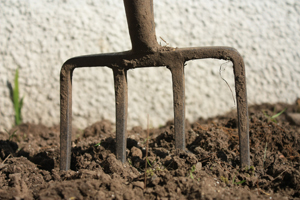 Taking the time to plan your organic garden will make it easier for you to plant, water, and weed, and you’ll maximize the space you have. Gardeners who plant randomly and don’t think through their decisions later realize they could have grown more plants or enjoyed a larger variety of crops. What could have been a lovely garden turns out to be a mess, and a few minutes of careful planning would have avoided the problem.
Taking the time to plan your organic garden will make it easier for you to plant, water, and weed, and you’ll maximize the space you have. Gardeners who plant randomly and don’t think through their decisions later realize they could have grown more plants or enjoyed a larger variety of crops. What could have been a lovely garden turns out to be a mess, and a few minutes of careful planning would have avoided the problem.
Here are a few ways to plan a successful organic garden.
Where should you put your garden?
When you plan your organic garden, the first thing you should do is think about your garden area and what it will support. Ideally, you’ll use space that receives sunlight most of the day, so a north-facing area may not be the best place for a garden. A smaller garden in a sunny area will produce more than a larger garden in shade.
Begin thinking about what you’d like to plant so you plan for enough space and proper sunlight and shade. You don’t have to make any firm decisions yet, but keep your desired plants in the back of your mind.
Know the limitations of your soil.
While you’re determining the best location for your garden, don’t forget a prime consideration: the soil. Is it dark and rich, or does it contain sand or clay? While you may have the same type of soil throughout your yard, it doesn’t hurt to dig in several areas and look at the soil quality. You want a combination of the best soil and the sunniest areas for your garden.
Your county’s agriculture extension office can help you test your soil, and you can greatly improve its quality by using organic composted cow manure such as MOO DOO®. Working organic fertilizer into the soil will ensure that you’ve added nutrients, such as nitrogen, that will help you grow large, delicious vegetables or lovely, aromatic flowers. Organic top soil such as MOO DIRT® will improve the quality of sandy or clay-based soil and give you more options in locating your garden.
What to plant?
Keep thinking about what you’d like to plant. If you’re growing an organic vegetable garden, you’ll want a variety of plants, as you probably want to eat some and store some. Depending on where you live, you may be able to harvest year-round, so the planning you’re doing now is especially important. If you group plants by harvest date, it will be much easier to do the harvesting and prepping of each garden area.
Keep critters out with a fence.
Consider putting a fence around your garden to discourage animals from nibbling at your garden or digging in it. You don’t want the neighbor’s dog to undo all your hard work, and you don’t want a rabbit eating tomorrow night’s salad.
Rotate planting each year to discourage disease and circulate nutrients through the soil. If you’ve carefully planned your organic garden, you’ll remember where everything grew last year so you can easily rotate them to a new area.
Do you have any organic garden planning tips?




